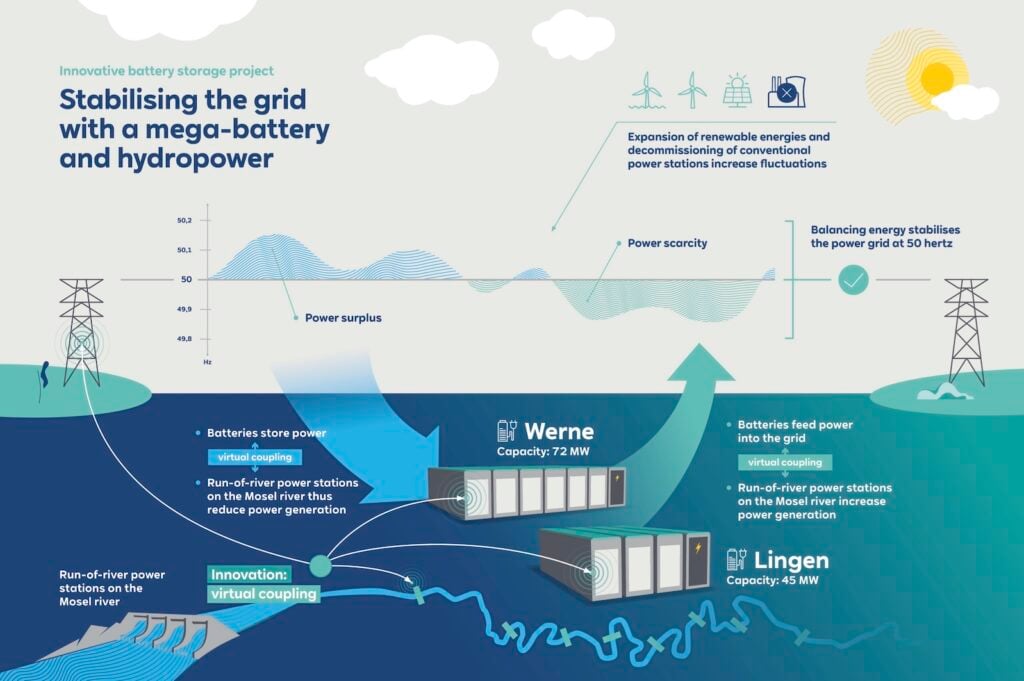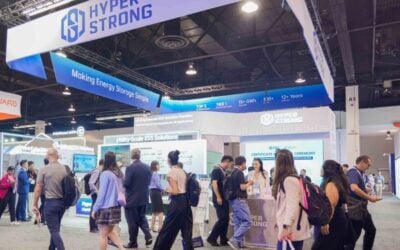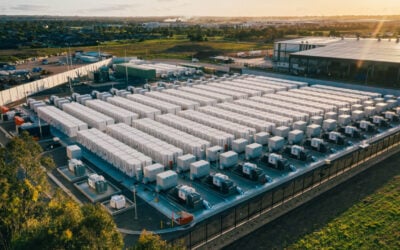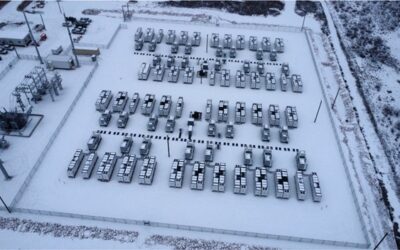
International energy company RWE is about to take two battery storage projects virtually coupled with existing run-of-river hydroelectric plants into commercial operation in Germany.
The company announced the completion of the two lithium-ion battery storage projects in Lingen (Lower Saxony) and Werne (North Rhine-Westphalia), which total 117MW of power and 128MWh of energy storage, yesterday (9 January).
The facilities are going through a trial run and will begin commercial operation in the next few days, it added. Earlier statements provided to Energy-Storage.news by the company said the Werne facility would enter commercial operations in November 2022.
The Lingen site is the smaller of the two at 45MW while Werne is likely to be Germany’s largest operational battery storage system at 72MW, ahead of Germany utility LEAG’s 66MW Big Battery Lausitz and Netherlands-based utility Enecon’s BESS Jardelund at 48MW.
Try Premium for just $1
- Full premium access for the first month at only $1
- Converts to an annual rate after 30 days unless cancelled
- Cancel anytime during the trial period
Premium Benefits
- Expert industry analysis and interviews
- Digital access to PV Tech Power journal
- Exclusive event discounts
Or get the full Premium subscription right away
Or continue reading this article for free
Chinese battery major CATL provided the battery cells which RWE integrated into its own proprietary battery enclosures. RWE will also manage the facilities through its energy management system (EMS). The units will mainly provide grid ancillary services, for which prices have increased dramatically in the past 18 months.
The two systems will be virtually coupled with RWE’s existing run-of-river hydroelectric facilities along the Moselle River. The company said that by doing this and selectively regulating the plants’ flow rate it can increase the total capacity of power available for grid stabilisation by 15%. Tests have been successfully carried out on this software and regular application of the coupling programme is scheduled to begin in spring.
RWE said it invested €50 million (US$54 million) into the two battery storage projects. This is significantly lower than the rough benchmark figure for lithium-ion battery systems of US$1 million per MW of power that Energy-Storage.news has observed in other projects.
Energy-Storage.news has asked the company to comment on the figure and will update this article when a response is received.
Roger Miesen, CEO of RWE Generation, said: “With the increasing expansion of renewable energies, Germany needs innovative storage solutions on an industrial scale that can step in when the wind and sun are not supplying. In terms of size and technology, we are setting benchmarks in this country with our mega-battery. The completed battery storage facilities and our hydroelectric power plants on the Moselle will work hand in hand in the future to help stabilise the electricity grid.”
Is is the latest in a flurry of battery storage projects that RWE has brought online or announced in the last few months.
Just last week, Energy-Storage.news reported on the commissioning of its 4.8MW/9.6MWh co-located project while in November it announced it would build two similar projects – all three at its lignite mines in North Rhine-Westphalia.
The same month, it announced its biggest battery projects yet – two systems totalling 220MW, also in the western state, which will be coupled with existing generation plants similarly to the Werne and Lingen units.
Energy-Storage.news’ publisher Solar Media will host the eighth annual Energy Storage Summit EU in London, 22-23 February 2023. This year it is moving to a larger venue, bringing together Europe’s leading investors, policymakers, developers, utilities, energy buyers and service providers all in one place. Visit the official site for more info.





